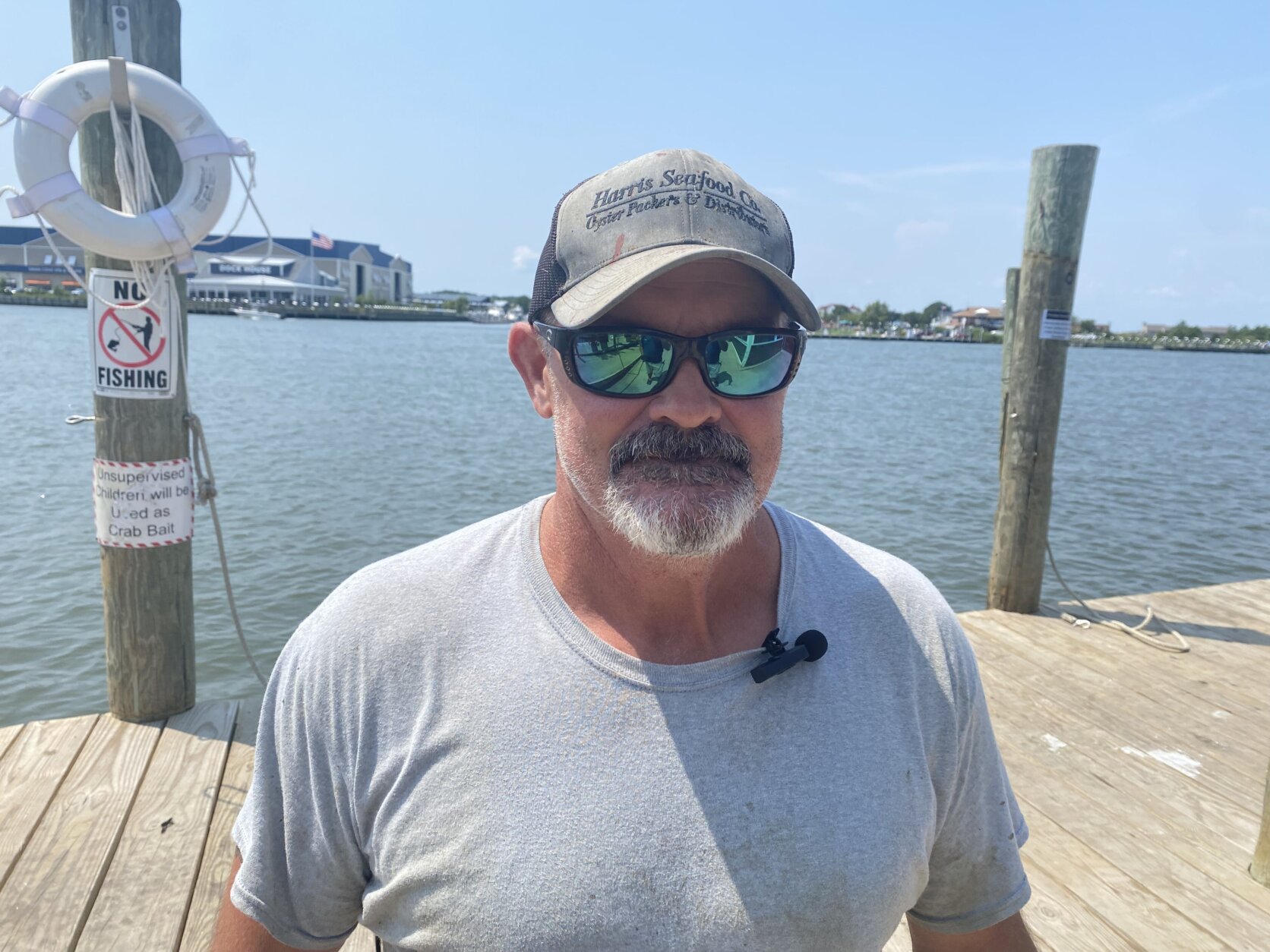
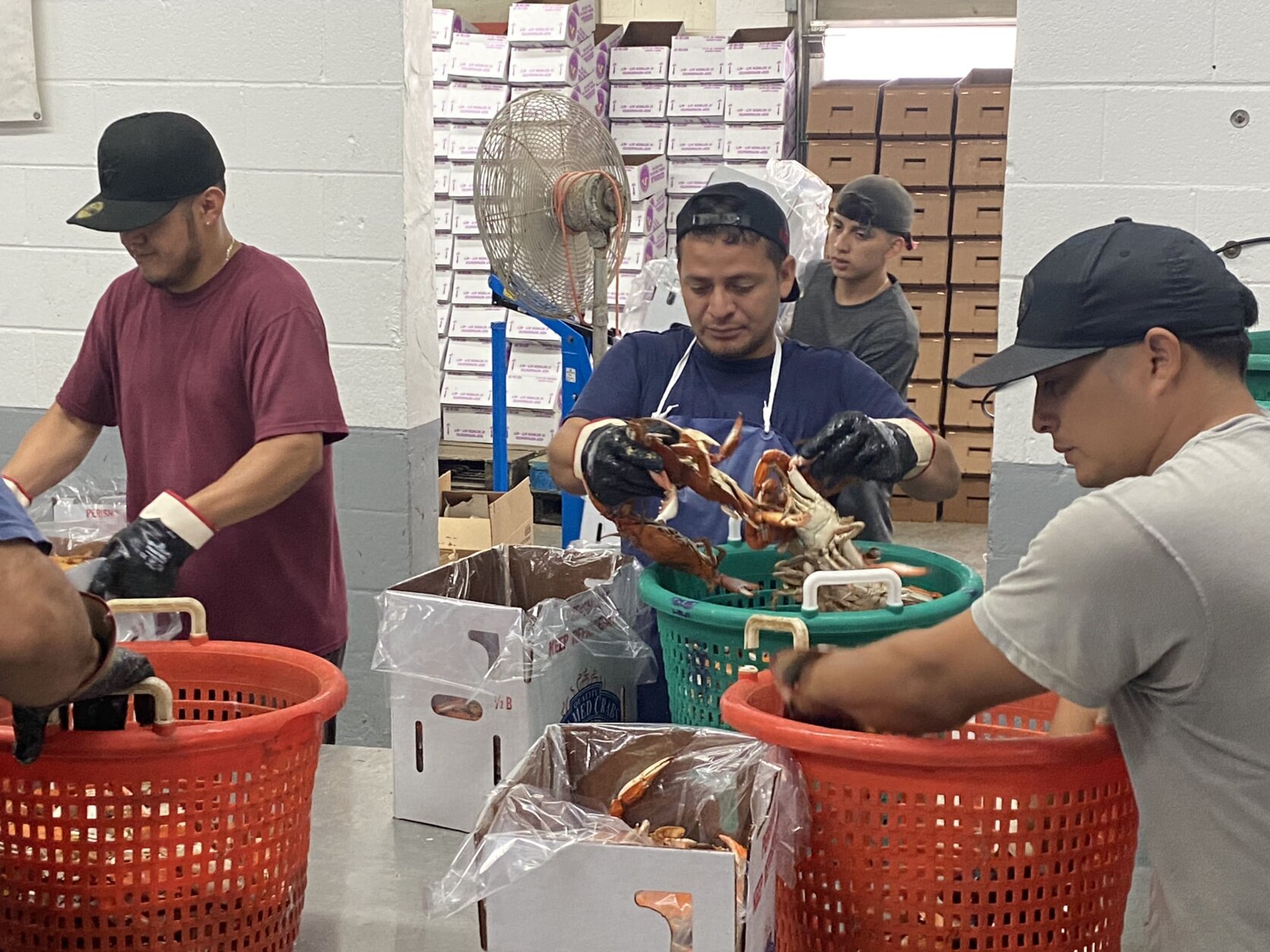
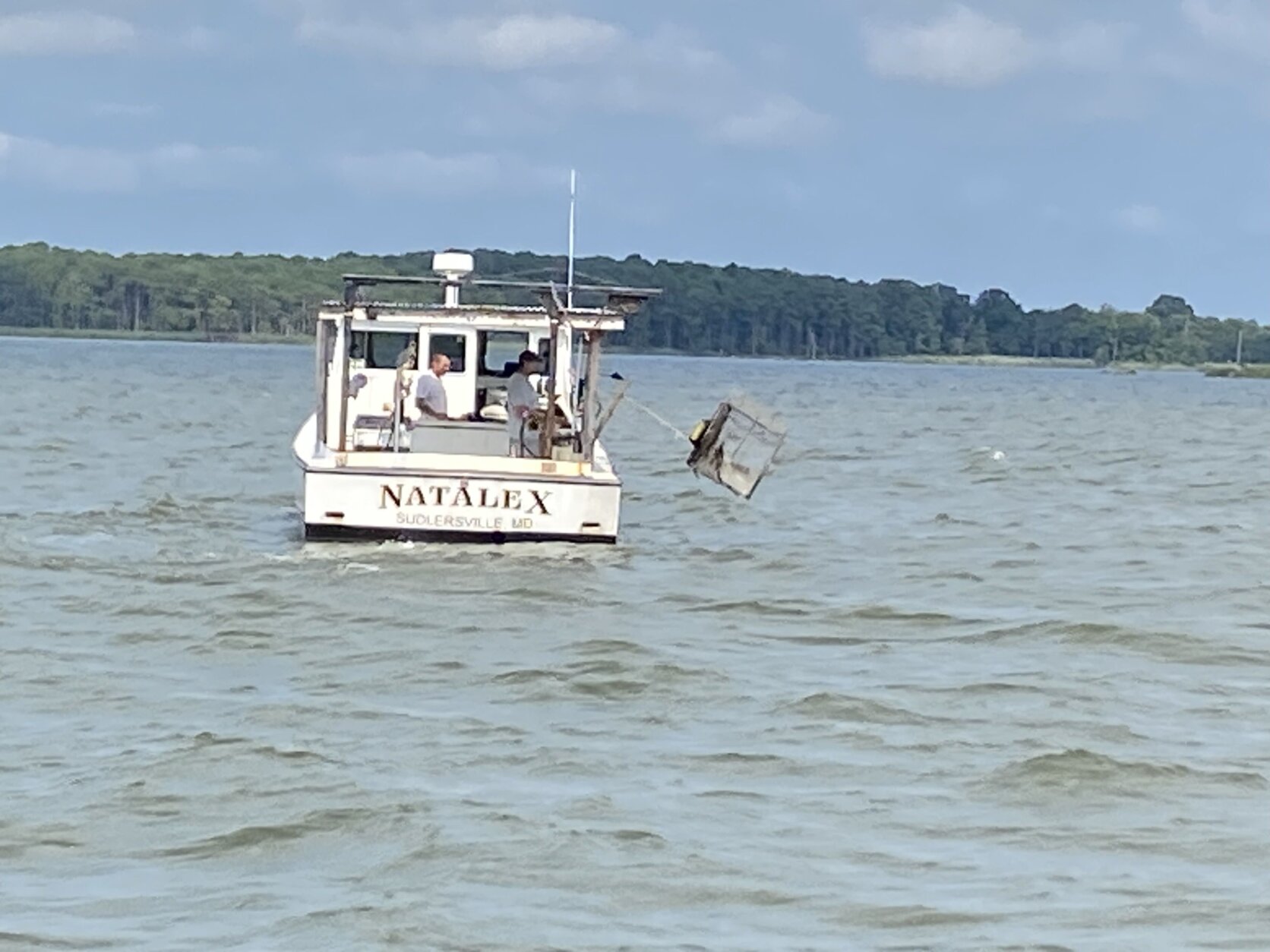
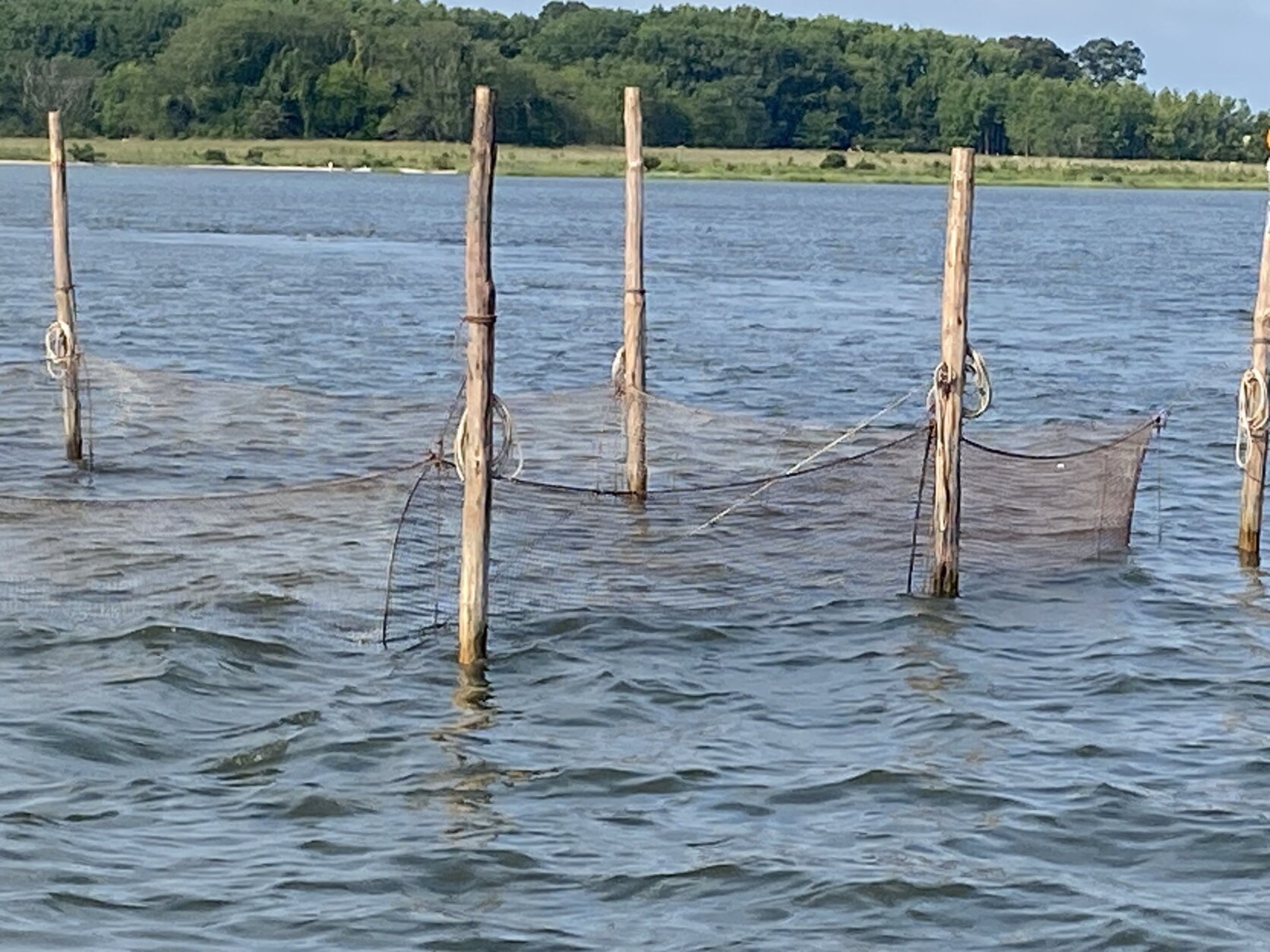
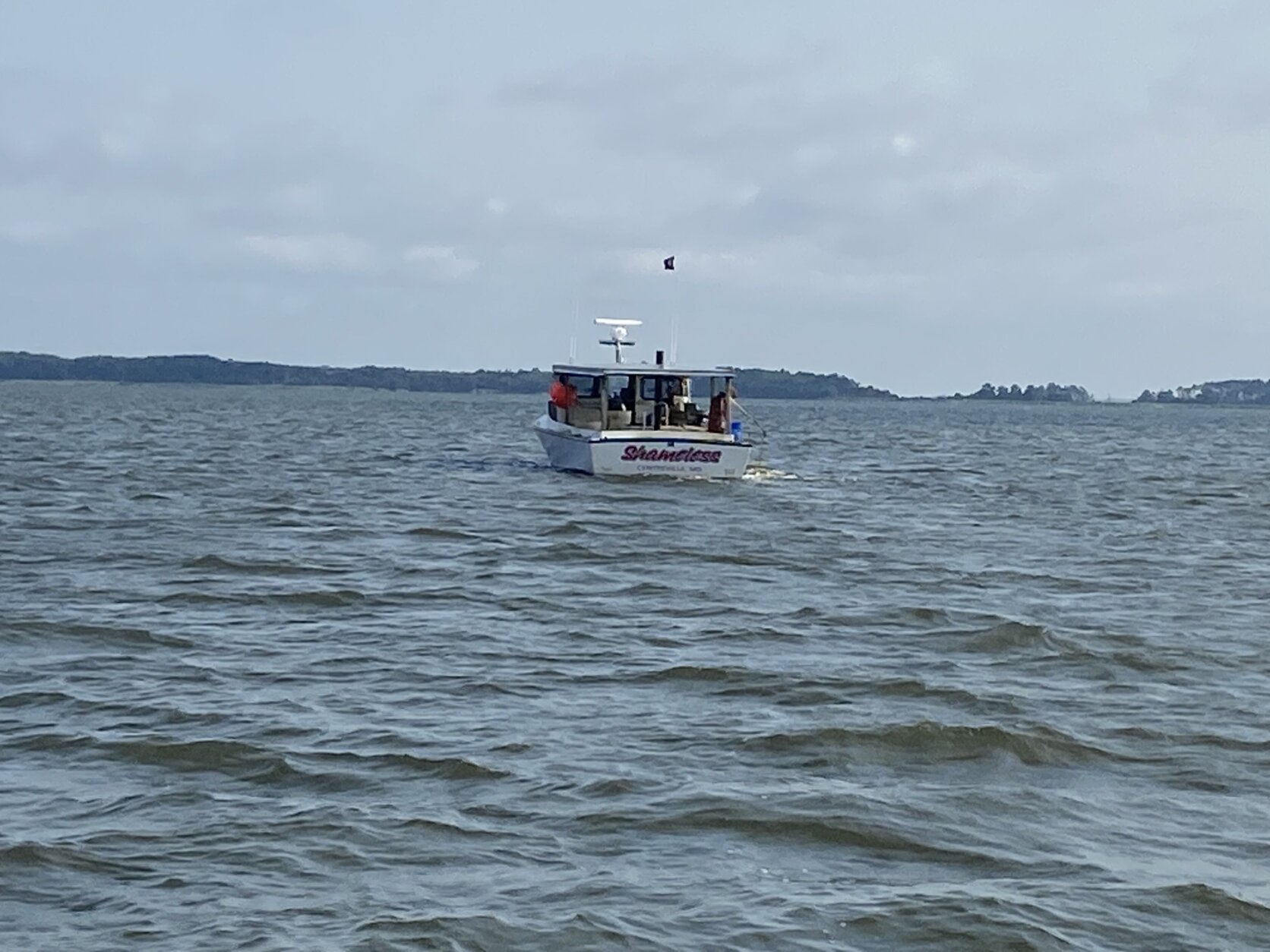
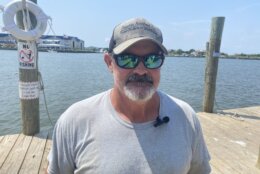
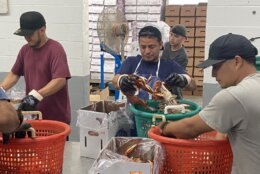
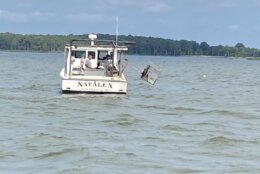
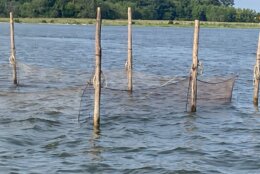
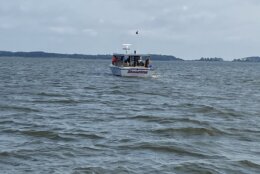
This week, WTOP takes you from the bottom of the bay to the picnic table in our four-part series Claws and Effect: The murky future of the Chesapeake Bay blue crab. Listen on air and read it online. This is Part 3. Read Part 2 here.
There are plenty of crabs throughout the Chesapeake Bay region, and while it costs a lot of money, anyone looking to host a crab feast can do so. But there are warning signs about the future of the crab population that scientists are still trying to grapple with. The future of those who catch all the crabs you like to eat is also filled with uncertainty.
There are almost 5,400 licensed commercial crabbers in Maryland this year, the first time in more than a decade the state has licensed fewer than 6,000 commercial crabbers. And it’s not clear how many of those who have a license actively harvest crabs on a regular or even part-time basis.
The state doesn’t have records detailing the number of commercial crab licenses issued before 2013. But there’s a lot of reasons for the decline.
‘Nothing’s guaranteed when I leave the dock’
“It’s gotten a lot harder (to be a waterman),” said Ian Horney, one of the founders of the Queen Anne’s County Watermen’s Association.
He starts crabbing near the Virginia line as soon as the crab season opens up, and makes his way north, before migrating back south for the end of the season.
“I chase crabs until the end,” he said.
He estimates he spends about $400 just to go to work every single day, between the bait and boat fuel needed.
“Nothing’s guaranteed when I leave the dock,” he said.
It’s a risk that Jason Ruth, who owns Harris Seafood Company in Grasonville, said fewer people are willing to take.
“We don’t have the amount of watermen that we used to 20 years ago,” said Ruth. “It’s not an industry that people flock to for a living, because there is so many variables into it. I mean, you can have bumper crop years, and then you can have five or six lean years, and it’s kind of hard to stomach that.”
He said the watermen they do buy from are an aging population.
He also noted that commercial watermen are often the ones who have to deal with limits and restrictions while residents are free to take what they want from the waters.
Dead zones, cost and inflation
Horney expressed frustration about increasing development in the Baltimore-Washington area that generates runoff and sewage, which impacts the water he works on.
“They wonder why we have dead zones in waters — places where there’s no oxygen in water,” said Horney. “You can’t use it for a toilet and expect anything different.”
But long term, he said costs and inflation will drive many away from the water.
“You go to the grocery store … it costs twice as much as it did (in the past). The price of our product hadn’t gone up,” said Horney. “I know people think that we make a lot of money because they pay a lot of money for crabs. We’re not the ones making the money.”
- Read Part 1 of “Claws and Effect”: The murky future of the Chesapeake blue crab
- Read Part 2 of “Claws and Effect”: Who’s to blame for the blue crabs’ disappearance?
- Read Part 4 of “Claws and Effect”: Everyone thinks there’s only one right way to eat a crab. What if they’re wrong?
In fact, he said he’s making less than he used to.
“Yes, because the overhead’s more,” said Horney. “Fuel is more, oil is more, boat slips are more. Just to pack our lunches — more.”
He added that he makes less per bushel than he used to.
“Our crabs are getting cut on this end, but on the other end — on the retail end — there’s no drop in the price,” he lamented. “I’d like (to be) sharing some of that.”
As he approaches 50, crabbing is all he plans to do in life. But between the costs he deals with every day, and the cost to just to get a license from the state, Horney said he understands why the next generation is more hesitant.
In fact, he said neither his son or his daughter are following in his footsteps.
“Unless you’re already established and already have your equipment bought and paid for, it’s hard for a young man to go out and spend — to jump in this business and go crab potting or do something that takes a lot of equipment,” said Horney. “You’re talking about hundreds of thousands of dollars. You tell (a) young man that he’s got to spend a couple hundred thousand dollars to get in the business, not knowing whether he’s going to make a dime back at it.”
“A man’s probably more apt to just go get a job in a trade somewhere where it’s a steady paycheck,” he added.
And if no one follows in his footsteps?
“Guess it comes to an end,” he said.
In Part 4 of our series, WTOP explores the most efficient ways to pick crabs, and how to cook up the crustaceans.
Get breaking news and daily headlines delivered to your email inbox by signing up here.
© 2024 WTOP. All Rights Reserved. This website is not intended for users located within the European Economic Area.








